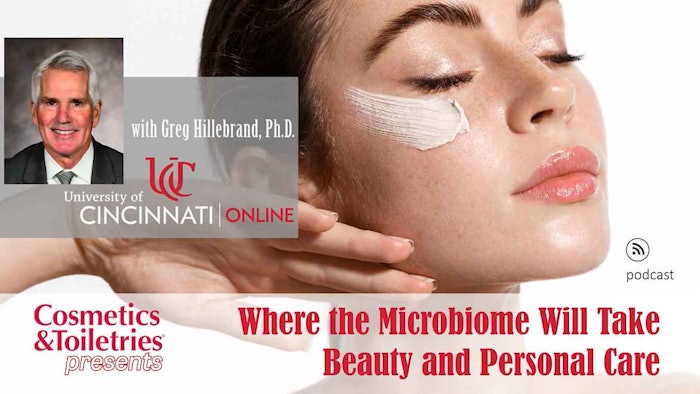
This podcast is sponsored by: University of Cincinnati
The successful colonization of an imbalanced gut microbiome system with a healthy one and subsequent positive outcomes have inspired product developers on the skin care front, according to Greg Hillebrand, Ph.D., associate professor of pharmaceutical and cosmetic sciences at the James L. Winkle College of Pharmacy at the University of Cincinnati.
"It's so exciting because the [U.S. Food and Drug Administration] (FDA) just recently approved the first microbiome-based drug for the treatment of recurring C. diff infection," he said. "I think that that gives us skin microbiome scientists a lot of inspiration and precedence for doing similar microbiome-based skin care technologies that treat common ailments like acne, eczema, seborrheic dermatitis and dandruff — all of these conditions that are associated with microbiome dysbiosis in the skin."
How did these findings emerge? What are our next steps and where will this knowledge take cosmetics and personal care product development? Furthermore, how does the University of Cincinnati train new formulators to address even basic industry challenges — much less complicated ones such as this? Hillebrand explains, in this sponsored podcast.
Listen now.










